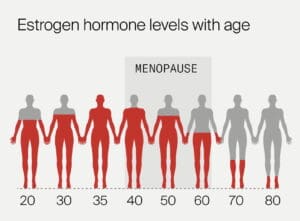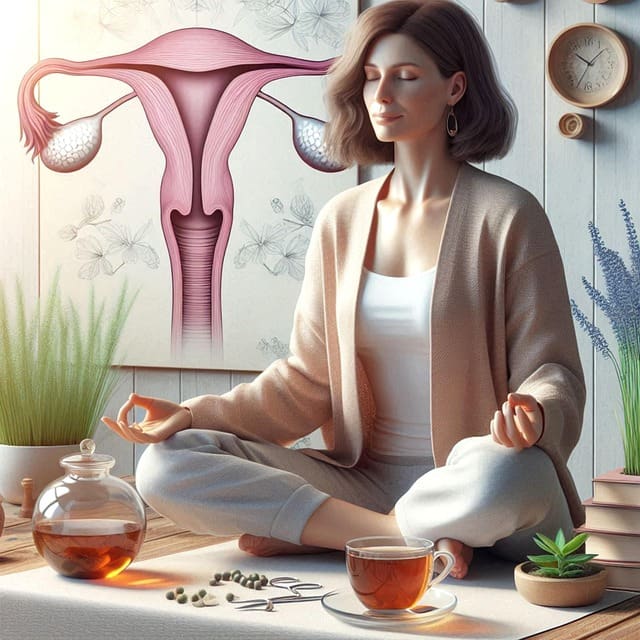Menopause
No one really prepares you for menopause. Sure, people joke about hot flashes and mood swings, but no one sits you down and say, “By the way, at some point your body is going to change to the point that you are going to feel like a stranger in your own skin”. Menopause is not just about what is happening to your body, but also about what is happening inside your body. Menopause is often described as a period of transition and transformation, one that not only has a profound physical impact, but also in your emotions. Menopause is not just about what is happening to your body, but also about what is happening inside your body. Menopause is often described as a period of transition and transformation, one that not only has a profound physical impact, but also in your emotions.
Remember, we are like a machine and, as a finely tuned one, every system in us is interconnected. Every ‘internal system is influenced by this change, initiating a transformation that touches not only the body but also the emotional well-being and the sense of self. Though overwhelming, this process can also foster growth by reshaping perspectives and redefining priorities for the next step.
The Many “Faces” of Menopause
Hormones

It all starts with hormones, mainly estrogen and progesterone, quietly packing their bags after years of running the show. Estrogen is not just about your reproductive system, it supports your brain function (it protects your neurones and supports brain function), your mood, your bones, your heart, your skin, and even your joints. Progesterone helps regulating your sleep, mood and body temperature.
When levels fall, it can feel like your body has suddenly pulled the emergency brake.
Brain Fog
Ever walk into a room and immediately forget why? Or lose your words mid-sentence? That is what Dr. Lisa Mosconi, a neuroscientist who has spent her career studying the female brain, calls “menopause brain fog”. This is not in your imagination, or rather, it is, but not in the way people think. When estrogen dips, brain chemistry shifts. Suddenly, focusing, remembering, and even thinking clearly feels like an extra challenge. These mental changes are often frustrating, sometimes scary, and often catches women off guard.
Metabolism
Another unwelcome surprise. Metabolism slows down too. When the hormones decide to “retire”, the body starts storing fat in places where you never thought there would be. Weight that used to come and go now sticks around settling in like a guest who has no plans to leave, now sitting comfortably there, in your own living room, unwilling to let go of your TV remote control….. Your body rewrites its own rules without asking your permission.
Mood
 The drop of hormones deregulates our systems. Mood is directly affected by the decrease in estrogen. Less estrogen means less serotonin and dopamine, the chemicals that help keep us feeling balanced and happy.
The drop of hormones deregulates our systems. Mood is directly affected by the decrease in estrogen. Less estrogen means less serotonin and dopamine, the chemicals that help keep us feeling balanced and happy.
It is not unusual to suddenly find ourselves shedding tears over a TV ad that sells cars, or become irritable over things that, hitherto, never used to be an issue, like our beloved pet asking for some ‘TLC’. And it is not just “mood swings”. For many women, it is a deeper, heavier sense of anxiety or sadness that lingers, not always linked to anything specific. this becomes so hard that it makes you feel like you want a “time out” from yourself. I tend to associate this to those science fiction movies where the alien changes its skin…
No, you are not being dramatic. You are adjusting to a brand-new hormonal reality.
Sleep
And then there is sleep – or rather, the lack of it. You might fall asleep fine, only to wake up at 2am wide awake, tossing and turning because your body feels like it is overheating from the inside. Night sweats are a cruel trick. They add insult to injury, leaving you exhausted even when you desperately want rest.
Social Life
All these changes show up in behaviour too. You might start withdrawing socially as you struggle with the way you look and/or the way you feel about yourself. You may feel too tired or too embarrassed to explain why you are suddenly drenched in sweat. You might feel snappier with loved ones, or unable to focus on things you once enjoyed. Or, in some cases, you might take the opposite route, overhauling your routines, protecting your time fiercely, and leaning into health practices.
Either way, menopause reshapes not just your body but also how you engage with the world.
Let’s think together…. Shall we?
I purposely described these changes with a ‘pinch of salt’, or with a little bit of humor because sometimes laughter helps. Menopause marks a natural life stage that is characterised by both physical and psychological changes, a period of adjustment and shift in identity. Recognising, accepting and integrating it as a period of transition and transformation, in other words a profound life stage, is important. It can make you feel vulnerable, self-conscious, awkward or anxious.

Let us not forget that menopause is not experienced in an isolated manner. We still must deal and manage the additional stress, grief and complexities of our daily life and relationships. Menopause often represents the closing of one chapter and the beginning of another, sometimes symbolising the “end” of a younger version of ourselves. For many women, this stage coincides with children becoming independent and needing their mothers in different, less central ways. While we remain mothers, that role may no longer define us as strongly. On the other hand, retirement, too, can bring a sense of loss as is the experience of watching our parents age sharpening our awareness of vulnerability, fragility, and mortality.
Beyond the biological changes, menopause can carry profound psychological weight. The end of fertility may stir feelings of grief or loss in some, while for others it brings relief from the demands of reproduction. Cultural attitudes toward aging and femininity can compound these experiences, at times challenging a woman’s sense of identity and self-worth. And yet, despite how common this transition is, women are too often told to “just deal with it”. Too many women suffer in silence, feeling isolated, their experiences minimised or dismissed.
Really? …. Do we and our loved ones expect us to grieve in silence and move on quickly?
So, what can you do?
The first step is recognising that what you are experiencing is real and valid. You are not broken, and you are not failing. Rather, you are navigating a profound shift into a new biological reality.
- From a therapeutic perspective, counselling can provide a supportive space to explore and make sense of this transition, encouraging reflection, self-discovery, and the processing of challenges and losses, while also fostering growth and empowerment. Interestingly, many women start saying “no” more often during this phase, whether from wisdom or exhaustion.
- In any case, setting boundaries often becomes a survival mechanism. Things you once tolerated – whether it is extra responsibilities, toxic friendships, or just noise in your life – suddenly feel unbearable.
- From a more traditional standpoint, several options may help ease the process. The medical model includes Hormone Replacement Therapy (HRT), which many physicians now consider safer than once believed and potentially life-changing, though some remain more cautious in recommending it.
- In addition, lifestyle practices such as strength training, mindful eating, and effective stress management can build resilience and support long-term health.
Final Thoughts
Menopause can be a period of reflection and empowerment. Many women use this stage as an opportunity to redefine priorities, embrace self-care, and find new strength in their evolving identities. Recognising and validating the emotional effects of menopause is essential, and by seeking compassion and support from loved ones or professionals, this stage can shift from struggle to transformation.
In summary, Menopause may close one chapter, but it also opens another, one that can be written with resilience, wisdom, and unapologetic self-care.
If you are facing difficulties in this new and complex stage of your life, do not hesitate to contact me to see how I can help you navigate it. Together, we can develop the necessary skills to help you better manoeuver through this transitional period.

